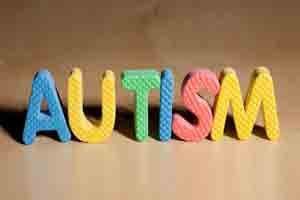- Home
- Editorial
- News
- Practice Guidelines
- Anesthesiology Guidelines
- Cancer Guidelines
- Cardiac Sciences Guidelines
- Critical Care Guidelines
- Dentistry Guidelines
- Dermatology Guidelines
- Diabetes and Endo Guidelines
- Diagnostics Guidelines
- ENT Guidelines
- Featured Practice Guidelines
- Gastroenterology Guidelines
- Geriatrics Guidelines
- Medicine Guidelines
- Nephrology Guidelines
- Neurosciences Guidelines
- Obs and Gynae Guidelines
- Ophthalmology Guidelines
- Orthopaedics Guidelines
- Paediatrics Guidelines
- Psychiatry Guidelines
- Pulmonology Guidelines
- Radiology Guidelines
- Surgery Guidelines
- Urology Guidelines
Kids with autism may increase siblings risk of disorder

New York : The risk of younger siblings developing an autism spectrum disorder is 14 times higher if an older sibling has the disorder, says a study.
Autism is a neuro developmental disorder defined by impairments in social interaction and communication, as well as restricted and repetitive patterns of behaviour.
The findings showed that children with older siblings who had autism had the disease rate of 11.3 per cent compared to 0.92 per cent for those with unaffected older siblings.
The risk level was found consistent across gestational age at birth.
Younger siblings who were born at preterm (28-36 gestational weeks) and had an older sibling diagnosed with autism were at 10 times increased risk for developing the developmental disorder.
"Our study provides additional insights into how autism affects siblings," said Darios Getahun, Scientist at Kaiser Permanente a US-based health care company.
Further, younger boys with Autism who had older brothers were much more likely to be affected by the disorder than younger girls with older sisters (15 per cent vs. 7 per cent, respectively.)
"The study also contributes to a better understanding of the influence of factors such as gender on autism risk," Getahun added.
Previous studies have found that second-born children who are conceived sooner than two years or later than six years after the arrival of their older sibling have a significantly increased risk of autism.
In addition, children born at term (37-42 gestational weeks) who had an older sibling diagnosed with autism had more than 15 times the increased risk for autism diagnosis.
"It is possible that parents who have an older child with an autism diagnosis are more likely to have their younger siblings tested, too, resulting in a higher rate of diagnoses among younger siblings, compared with parents who do not have children diagnosed with an autism spectrum disorder," Getahun noted, in the work published in Journal of Developmental & Behavioral Pediatrics.
For the study, the team focused on 592 children diagnosed with autism spectrum disorder and with at least two siblings born to the same mother between 28 and 42 weeks of gestation from 2001 through 2010.

Disclaimer: This site is primarily intended for healthcare professionals. Any content/information on this website does not replace the advice of medical and/or health professionals and should not be construed as medical/diagnostic advice/endorsement or prescription. Use of this site is subject to our terms of use, privacy policy, advertisement policy. © 2020 Minerva Medical Treatment Pvt Ltd